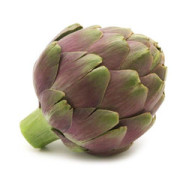That’s because they’re often emotionally mired in addiction, giving addiction its manipulative power. My late husband overdosed on fentanyl and died. To this day I don’t know if he committed suicide. I was in the other room when he died and had no idea he was gone.
- Let them know how their addiction is impacting you and express your need for a healthier relationship.
- It’s not unheard of for addicts to lie, manipulate and even steal from family members so they can buy their next fix.
- Additionally, addiction can have a profound impact on relationships, further exacerbating the effects of trauma.
- By taking care of yourself, you become better equipped to support your partner on their journey.
- Addiction not only affects the individual but can also impact the people close to them.
It can be tough for loved ones, especially parents and significant others, not to take addiction personally. It’s not unusual to think that something you did caused them to use drugs or that you could’ve spared them from harm if only you did things differently. Guilt isn’t productive for anyone’s healing, but your involvement in their treatment and recovery can give them much-needed strength and support. Practice forgiveness and let go of the past so you can have that new beginning you have all worked toward. The word “no” is addiction’s least favorite word.
What Are 5 Signs That Indicate A Person Has An Addiction?
It is not the person who steals to support their habit, but the addict. It is not the person who spews obscenities at their family, but the addict. Drug addiction https://ecosoberhouse.com/ doesn’t care if you are religious. Drug addiction doesn’t care if you are a straight-A student or a drop-out. Drug addiction doesn’t care what ethnicity you are.

Loving actions such as cleaning up the living room after they’ve been sick, giving them money when they ask or buying them more wine when they have the shakes can quickly turn into enabling behavior. Watching a loved one battle drug addiction can take a huge toll on someone’s mental and physical well-being. When you’re in a romantic relationship with an addict, you may find yourself no longer recognizing the person you once fell in love with. You want to be compassionate and supportive and help them through the struggle, but sometimes, leaving a drug addict is the only option. However, breaking up with an addict you love is more complicated than simply walking away.
Signs of Addiction
Many people who recover from addiction live happy, healthy, and fulfilling lives. Domestic violence is common in relationships that involve addiction. Often you’ll need to enter counseling or conduct an intervention for a loved one struggling with addiction. It is important to understand that you might be just as “addicted” to your enabling behaviors as the addict in your life is to his or her manipulations. The only person you have any control over is yourself.
That substance is what the person’s mind and body are in love with, above all else. This may seem easier said than done, especially when it feels like you’ve tried everything in your power to treat the disease in your loved one. But addiction can be one of the most severe conditions to contend with. It’s one that often takes multiple people to help treat, including doctors, friends, and family members. These days, Renae laughs at the mama who drove around thinking she could scoop up her daughter and force her to stop using drugs.
Health
I’ve worked with plenty of addicts, but the words in this post come from loving one. I have someone in my life who has been addicted to loving an addict various substances. It’s been even more heartbreaking to watch the effect on the people I love who are closer to him than I am.
But, he has a constant thought of wanting to do drugs, to not think, to forget, to get lost in that high. He tells me I’m the reason he isn’t doing drugs and that I am the reason his head is above water. I love that I help him, but I feel I shouldn’t be what he has to rely on?
Drug Addiction and Relationships
Take the time to educate yourself about the nature of addiction, its effects, and the challenges your loved one may face. This knowledge will help you approach the situation with empathy and a deeper understanding. In most cases, loving a drug addict will not only give you a hard time, but it may also consume all your energy, mental stability, and the power to love. If a person is a drug addict, the effect will always be felt by those around them. This includes their partner, friends, coworkers, and even children (if any).
- She would give up on trying to control Brooke’s life.
- He’s a wonderful man, has a good job, good to his family, my best friend.
- Treatment centers often provide family therapy, where you can learn more about addiction and healthy ways to communicate or set boundaries with struggling loved ones.
From facing reality to rebuilding our lives, the strategies described by Plattor apply not only to those with an addict in their lives but to anyone impacted by poor choices made by others. She shows you how to stop doing the things that are not only making your own life miserable, but which are also “enabling” the addict to continue on the path of destruction. However, thanks to this ground-breaking book you can now discover how to help yourself disengage from the ugly path of addiction. Loving someone who has an addiction problem is like being trapped on a roller-coaster of painful emotions. You captivated me right from the very beginning.
Alcoholics Anonymous (AA)
He will have an army of people behind him and beside him when he makes the decision, but until then, I and others who love him are powerless. BetterHelp can connect you to an addiction and mental health counselor. It has been said that the least favorite word for an addict to hear is “No.” When addicts are not ready to change, they become master manipulators in order to keep the addiction going. Their fear of stopping is so great that they will do just about anything to keep from having to be honest with themselves. Some of these manipulations include lying, cheating, blaming, raging and guilt-tripping others, as well as becoming depressed or developing other kinds of emotional or physical illnesses. Once you stop your enabling behaviors, you can then begin to truly help your loved one.
- Although challenges may still arise, their commitment to self-care and the willingness to establish firm boundaries helped create an environment conducive to growth and positive change.
- Many people who recover from addiction live happy, healthy, and fulfilling lives.
- Compassion is a powerful tool in supporting an addicted partner.
- “I want my community to know what it feels like to be really loved so they never settle for anything less.”
- Enabling your partner can worsen their addiction and your relationship.
- If you have any questions, please leave them in the comments section at the end.








